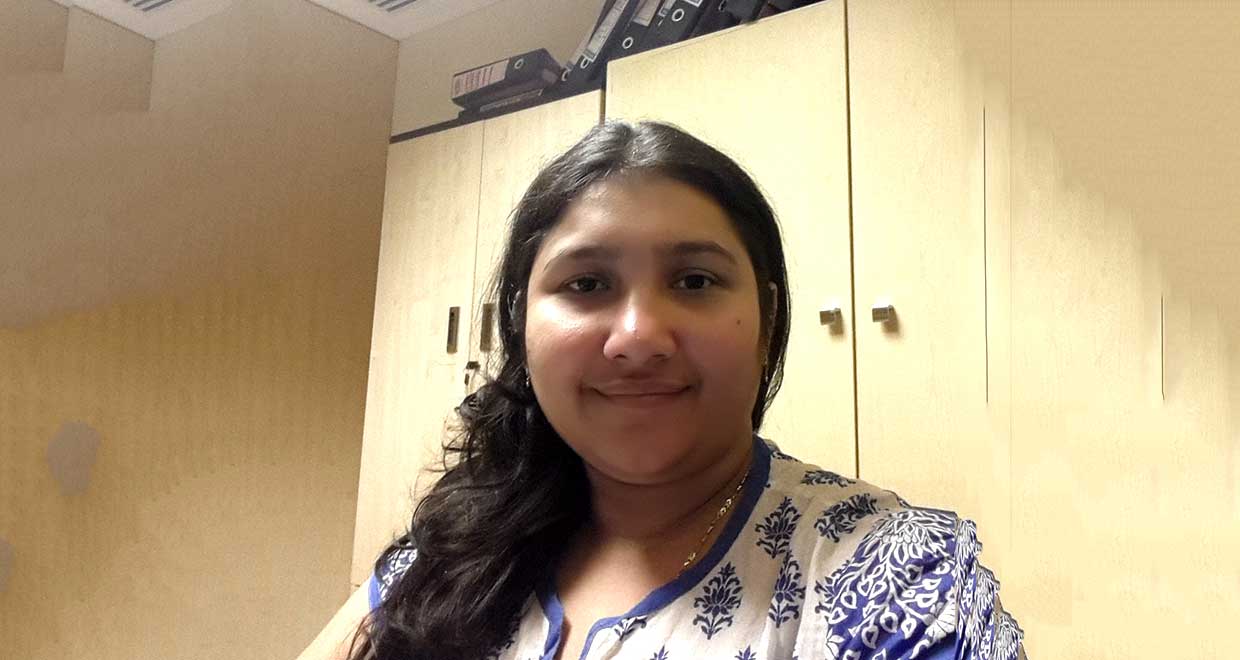Sumeeta Sharma is a graduate from K.C. Law College, 2003 batch. Her work experience has been diverse including litigation firms like Sharma and Associates, Vyas and Bhalwal and M/s. Thakore Jariwala and Associates. Thereafter she was an Associate at Krishna and Saurastri, an IPR firm. She was also the Legal and Secretarial Head at Samsonite South Asia Pvt. Ltd. before becoming DGM Legal at Bennett Coleman and Co. Ltd. (Times Group). She has recently completed Masters in Business Law from National Law School of India University, Bangalore.
In this interview she talks about:
- The importance of internships
- Working at litigation firms, IPR firms and in the corporate sector
- Working at Bennett Coleman & Co.
What got you into legal studies? Was it planned or something that just happened by chance?
My father has been in this profession and I was always inspired by his way of life.I was often recognized as a person with good debating skills and somewhere deep down I felt I can be a good lawyer. Though it was not planned and I wanted to be a scientist, I feel extremely lucky that I actually could take up a profession which was crafted for my personality. I would say that being a lawyer was my calling.
How was your experience at K.C. Law College? What activities were you involved in apart from the regular academic curriculum?
The experience with college was good and K.C. Law College per se conducts lots of activities for young aspiring lawyers to instil the love and passion for the profession. Yes, a couple of writing competitions and moot courts were the activities I was involved in.
What were your major interests as a student of law?
My interest was in Intellectual Property Laws, Laws with respect to Medicine (Medical Laws) and of course, laws with respect to the family. I would suggest young lawyers to take up criminal law, personal laws (family law, succession laws) as there seems to be great change required in the age old formulas and I feel if young lawyers take up these subjects not only can they explore a lot, but also contribute in amendments by questioning the very basics of old fundamentals.
How important is it for a law student to plan out the course of his/her internships to successfully gain from the internship experience?
Every lawyer should start internships right at the start, if they cannot spare more time, at least 4 hours a day. It is extremely important to get your basics strengthened right at the start. Law taught in class and court room working is completely different from each other. Thus, I pay a lot of importance on internships. I would suggest young aspiring lawyers to start with a small time lawyer (younger lot) rather than opting from bigger law firms as they may not be able to teach the core working of the court. So, I suggest they should approach their seniors from the college and request for internships. Once you have interned with such independent practising lawyers and the basics are already in place then the students should approach bigger firms.
Many believe that students of ‘elite’ law schools have an edge over students from other colleges? Is this true at all?
Yes, that is completely true. However, most students from elite colleges end up in the corporate sector with firms barely into transactional work. We have not seen many students from these elite colleges taking up litigation as their career. I feel there is a dearth of good quality lawyers in litigation, thus every lawyer should opt for litigation as their career.
After graduation you worked with various litigation firms including Sharma and Associates, Vyas and Bhalwal and M/s. Thakore Jariwala & Associates. How was your experience working at these places?
I always wanted to be a Generalist and wanted to know various things in one lifetime. Thus, I worked with various law firms in different specialities. As stated earlier, litigation firms are run on age old formulas thus the experience was enriching and I gained a lot from the pool of knowledge these firms hold.
Thereafter you had joined Krishna and Saurastri as an Associate. What led to the shift from litigation to an IPR law firm? How was your experience working there?
As I said, I had to taste law in its different form. The experience was enriching as I was exposed to the dynamically changing IPR norms globally. My experience was fantastic and created an interest and love for IPR Laws.
You thereafter left Krishna and Saurastri to start working at as Legal & Secretarial Head. What does Samsonite do and what was the nature of your work there?
Post Krishna and Saurastri, I started working as a legal counsel with Financial Technologies. FT and Samsonite both gave me an opportunity to learn the workings from the corporate end. Thus, it’s not only about thinking as a lawyer but also as a business personnel ensuring the company’s interests are legally well taken care of and helping the business accelerate.
Currently you work as DGM Legal at Bennett Coleman and Co. Ltd. (Times Group). How did the switch from Samsonite take place?
The Switch was smooth and as I said, I wanted to be a generalist, thus I opted to gain experience with different business sectors.
Please tell us the recruitment process at Bennett Coleman and Co. Ltd. What do they look for in their prospective employees?
The typical process takes 2 to 3 months and comprises 3 interviews (HR, Reporting Manager and the Business Head). They look for domain knowledge primarily.
What does your current work profile at Bennett Coleman consist of?
My current work profile at Bennett comprises mainly of (70 percent) transactional work and the rest is litigation and IPR.
Does Bennett Coleman and Co. Ltd. take interns? What is the process for same?
Yes, you may apply or request various legal heads. (Bennett is segregated into various companies and each company functions separately)
What would be your parting message for our readers?
Read as much as you can. Don’t try to mug. Law is nothing but common sense and once you read and analyse things will automatically come to you. Always take guidance from experienced personnel and buckle up for a tough ride if you want to be a good lawyer as first 5 to 6 years are your investment with absolutely no returns.
























